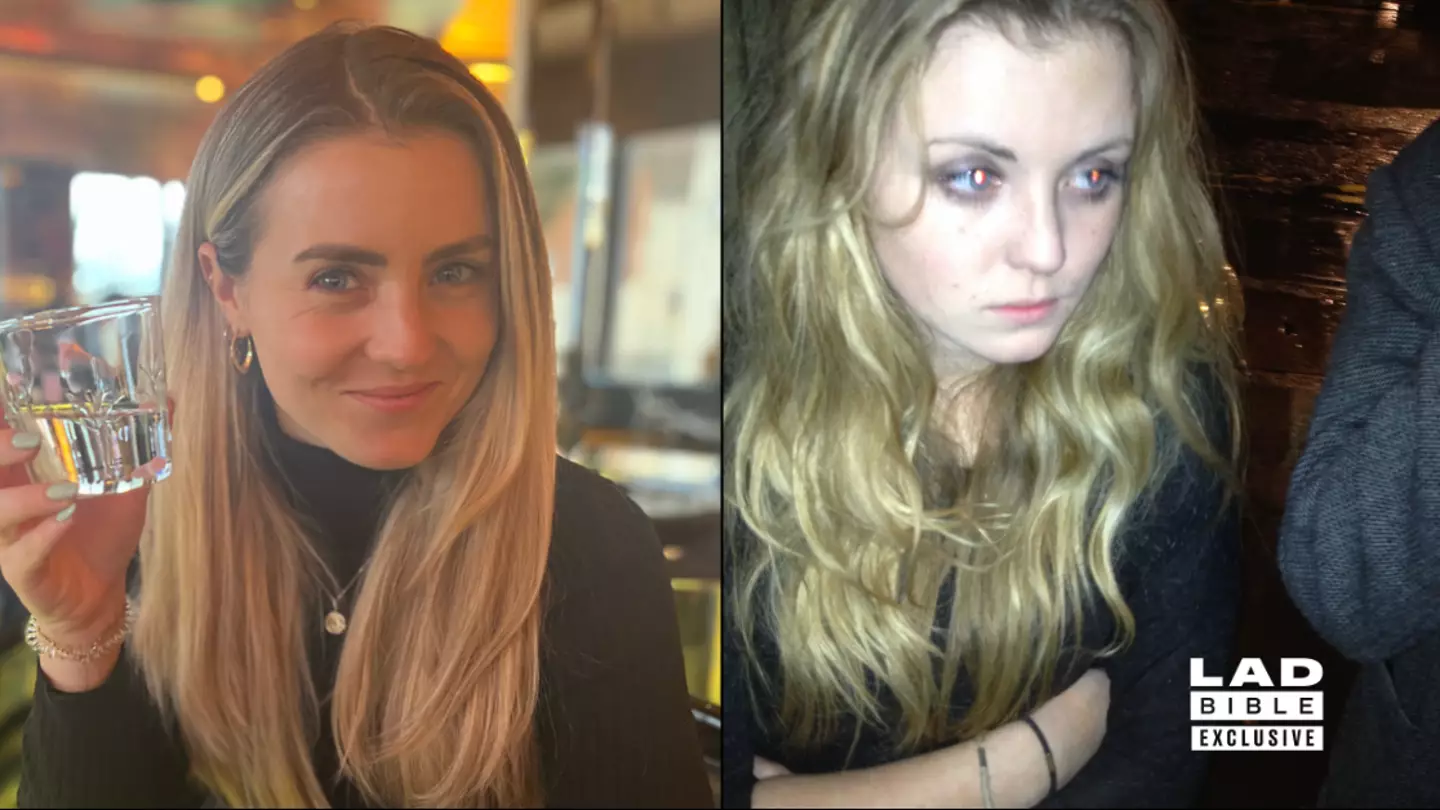
Warning: This article contains discussion of alcoholism which some readers may find distressing.
It’s been nearly 10 years since Issy Hawkins last had a drink and spent her 22nd birthday in a treatment centre. And she hasn’t looked back since.
The now 31-year-old is well-known for her inspiring sobriety content on social media, regularly opening up about her struggles as a young alcoholic and working as an ambassador for Alcohol Change UK.
Having once feared she would be heading to an early grave due to her drinking problem, Issy spoke to LADbible about the moment ‘everything good’ in her life had ‘vanished’ and taking the decision to give herself a second chance.
Drinking since her teens, the actor explains she knew drinking was a problem from the age of 18 because she ‘wasn’t using it like other people’ around her.

Issy is known on TikTok as ‘That Sober Actor’ (Supplied)
Instead, Issy was using alcohol ‘to numb’ herself.
“I think [it was] because I had a lot of stuff I wasn’t dealing with. I hadn’t gone into therapy,” she explains.
“I had terrible anxiety and panic attacks going on and undiagnosed ADHD – I now know because I got diagnosed with that this year [2024].”
But particularly as she was a young person working in the ‘party heavy industry’ of advertising in London, it was easy ‘to hide’ – especially when it came to drinking vodka from a squash bottle in the mornings.
Issy would also end up crying ‘every time’ she drank or ‘behaving dysfunctionally’ on nights out, spending most of the year before getting help in ‘blackout’.
Often downing extra drinks when she ordered a round at the bar, she adds: “I became incredibly sneaky when it came to alcohol – trying to centre events around it. Rather than go do something else, I’d be like ‘let’s go to a pub’ or ‘let’s go to this event because we can get really drunk’. Just trying to get everybody else to drink with me as much as possible so that I didn’t look like such a crazy person.”
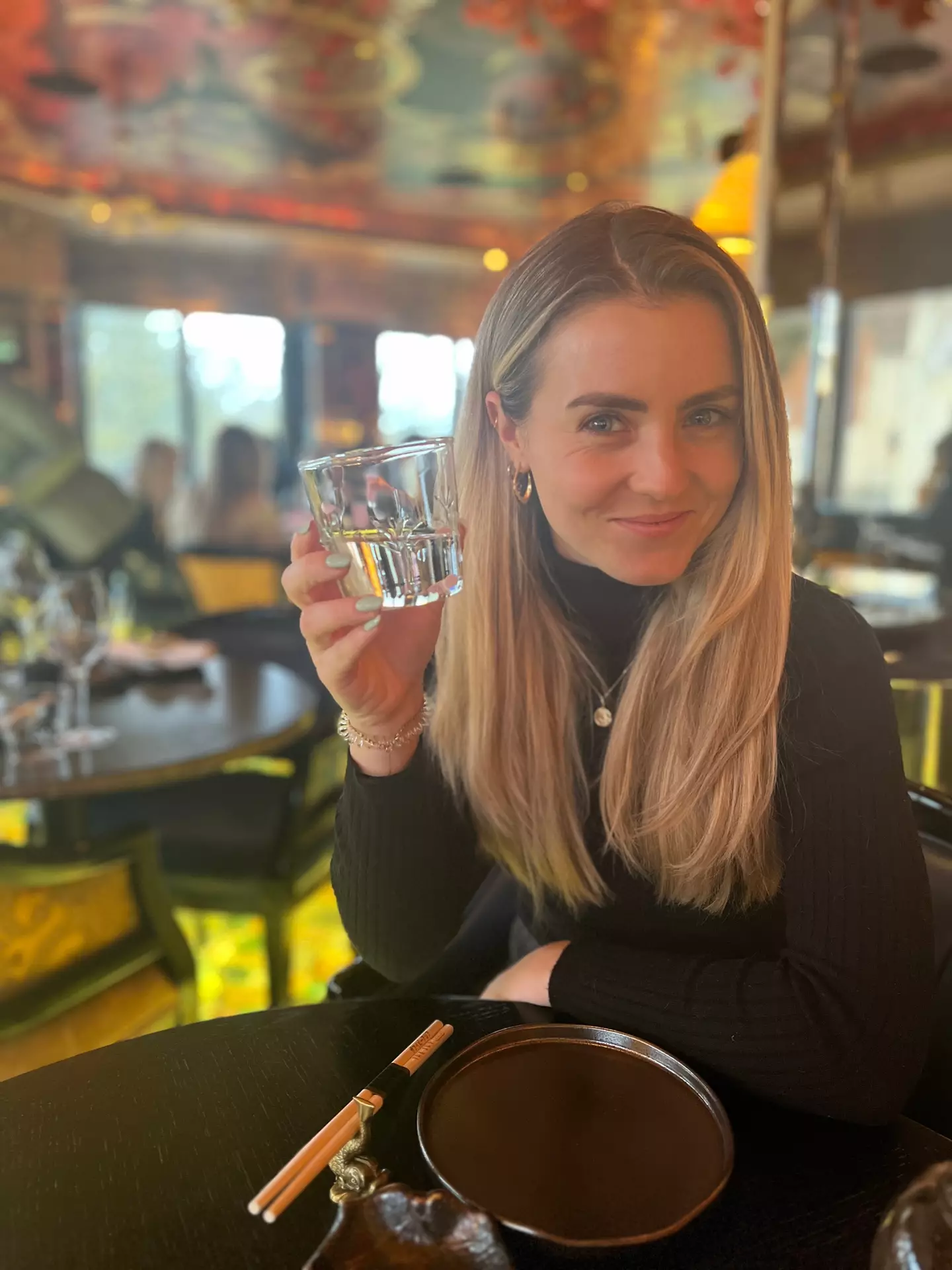
Issy has been sober for nearly a decade (Supplied)
Alcohol became the ‘number one thing of importance’ in her life. “Everything centred around it.”
But that doesn’t mean Issy wasn’t aware there was a problem, as she explains she would bounce between a ‘really bad low’ where she knew she needed help, to her ego rebuilding and believing she was ‘fine’.
And when the actor hit one of her ‘rock bottom’ modes, she went to a ‘government funded agency’ recommended for people with drinking problems.
Sat with her mum, she recalls: “They said to me, ‘There’s nothing we can really do for you. You probably need to go home and have another drink because we’re worried about you withdrawing, because withdrawing can be really dangerous’. And I just remember crying because I was like, ‘Okay, so there’s nothing.’”
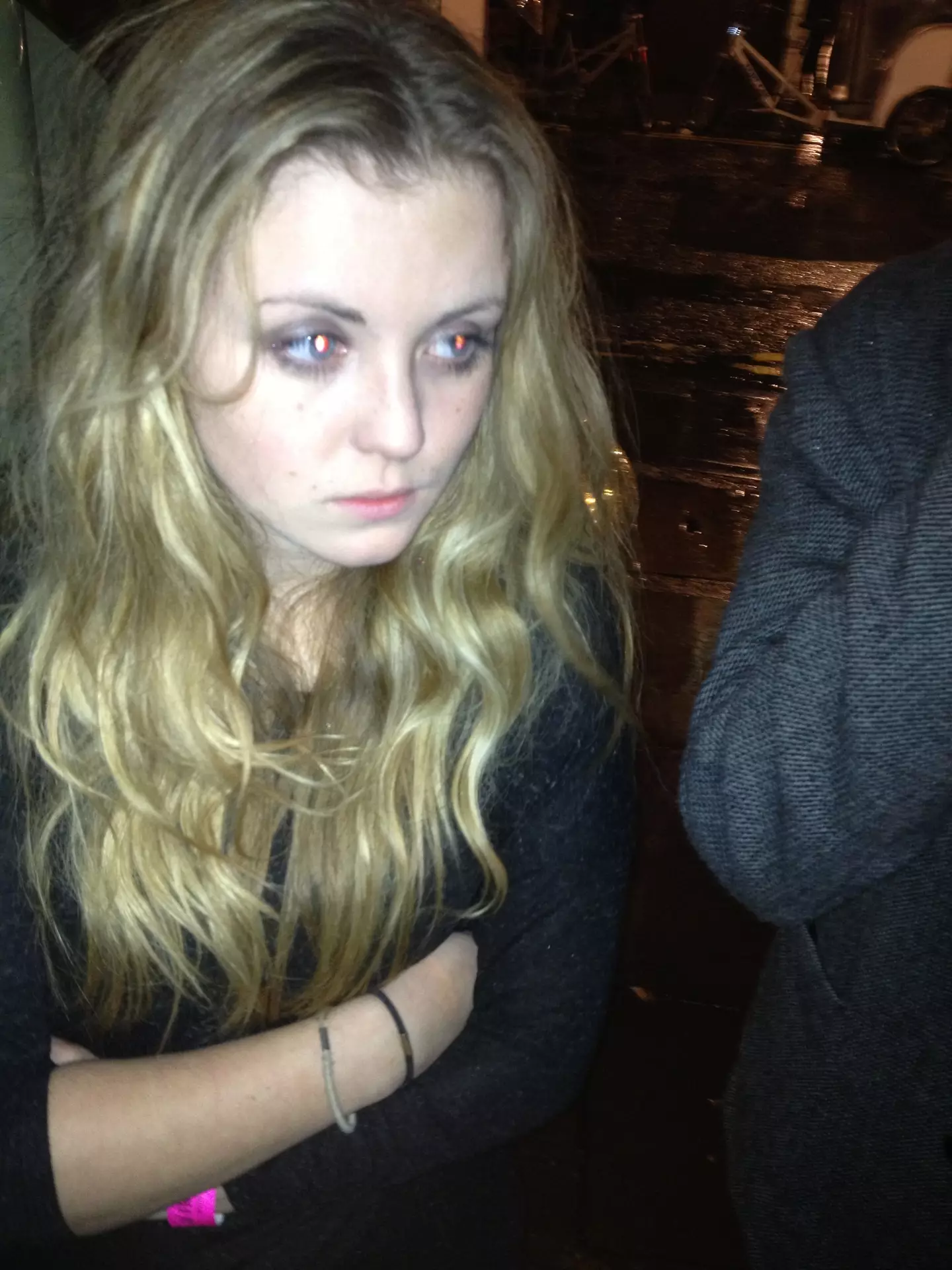
“I felt I needed to be removed from society because my life was just such a mess.” (Supplied)
After this ‘disempowering’ experience, Issy ended up relapsing.
“There’s such a fine window with somebody that has a drinking problem to catch them, because your ego rebuilds so quickly, and it’s got to be in that moment where you’re like, ‘I need help,’” she says. But about six months to a year later, Issy crashed back down and knew it was time.
“My drinking had just completely spiralled out of control into something that was really unhealthy,” she explains. “I was drinking in the mornings, I had lost my job, and it all came to a head the day my boyfriend was like, ‘I can’t do this anymore’, because he stuck by me for five years, through quite a lot, and it was just in that moment I was like, ‘Yeah, I can’t do this anymore. I need help.’”
With the consequences getting worse, Issy feared she was ‘probably gonna end up dead’ if she carried on drinking.
“Everything good about me had gone,” she adds, “I had so many hopes and dreams and they all just vanished.”

She now shares advice to others going sober. (Supplied)
With help from her family and the support of her friends, Issy checked into a treatment centre in February 2015 and has been sober ever since.
For her, alcohol is ‘an allergy’.
“If I had a nut allergy, I wouldn’t be like, ‘Maybe I can eat a nut, let’s see how that turns out’. This is just something I cannot do,” she explains.
Looking back on the blackouts and those dreadful hangovers she could never miss, she adds: “If you know it doesn’t agree with you, why do you keep pushing to try and make it work?
“I think that was the thing I wish I’d known as well; I just kept trying to drink, not like a normal person. I was like, ‘This time round, it will be different’. And it actually just kept getting worse.”
Going sober meant Issy was ‘forced to deal with things’ for the first time in her life, something she found ‘overwhelming’.
Having once ‘drank on every emotion’, she had to learn about herself and how she felt, process grief and face the fact she has ADHD when alcohol had once numbed her ‘incessant washing machine head’.

‘All the best things’ have happened to Issy now she’s sober (Supplied)
And now, her life is so much better.
“When you’re drinking a lot, you are knackered all of the time. Your health isn’t great, so you don’t have time or energy to pursue anything of value. And so, I started to find those passions again,” she says, having got into drama school a few years later.
Being sober also means Issy’s sleep is better, as is her mental health, and she’s able to save money, as she recommends people going sober think about what they’re ‘gaining’ rather than what they’re ‘losing’.
Reflecting on her inspiring journey, Issy says the big thing she wishes she knew before she ditched drinking: “All the best things would happen to me when I was sober and the alcohol would have brought nothing to any of those situations, it would have just distracted from it and probably stopped them from happening.”
Dry January is a campaign developed by Alcohol Change UK, you can find support and resources for taking part here.
Please drink responsibly. If you want to discuss any issues relating to alcohol in confidence, contact Drinkline on 0300 123 1110, 9am–8pm weekdays and 11am–4pm weekends for advice and support.
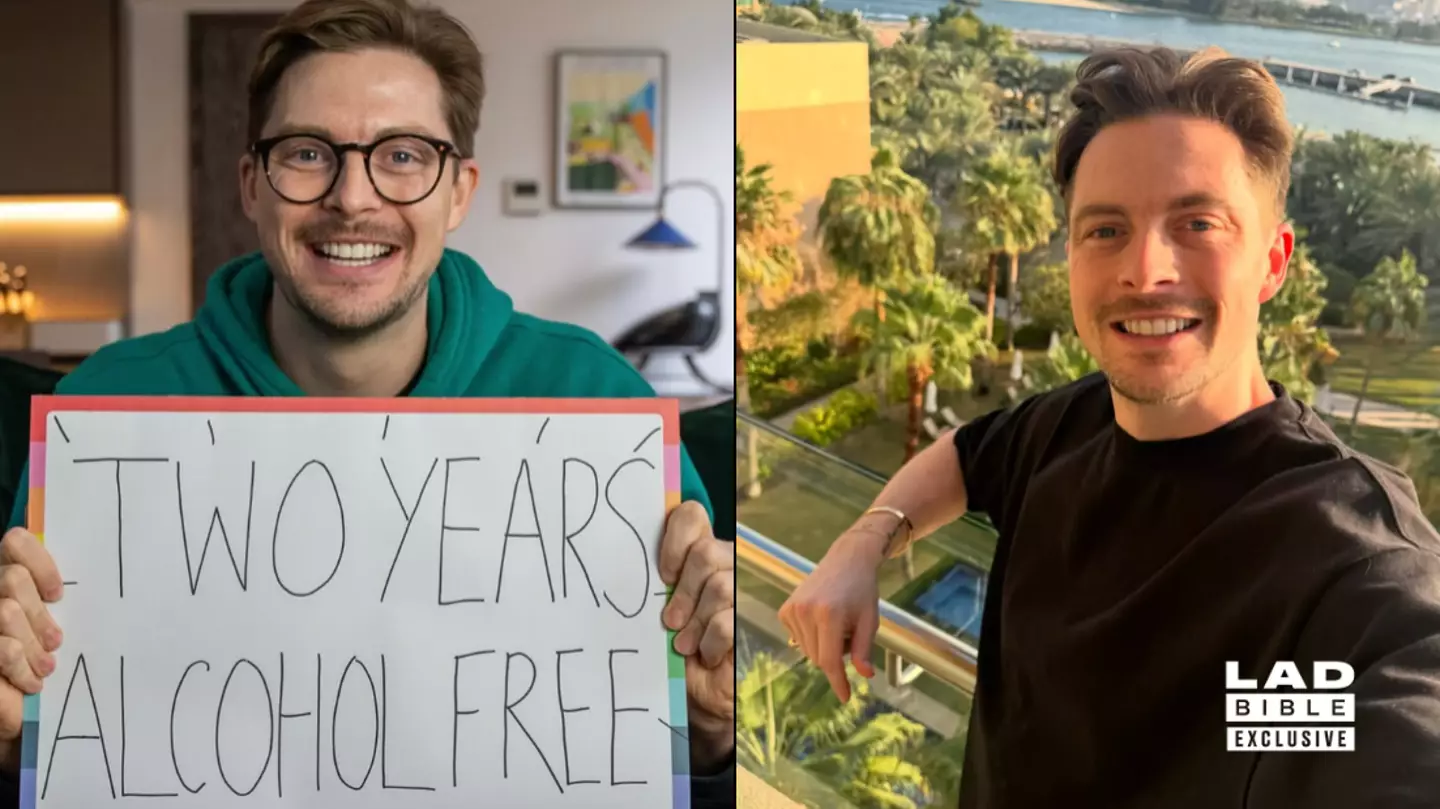
Warning: This article contains discussion of alcoholism which some readers may find distressing.
Whether it’s for the short or long term, giving up alcohol can be pretty confronting.
And with Dry January now in full swing, you might be realising new things about yourself both good and bad while taking part.
Tom Holland previously spoke about the ‘scary realisation’ he had while experts give detailed breakdowns about the changes that happen to you after ditching booze.
For this doctor, going sober meant learning a whole range of things about himself he’d never realised before, with one in particular completely changing his life.
Dr Alex George spoke to LADbible about his journey since giving up alcohol in December 2022.
The 33-year-old explained that rather than one single moment leading him to give up the booze, it was more of a ‘cumulative effect’; the mental health ambassador was struggling with a number of things including grief, physical health and burnout at the time, all of which took their toll.

Alex has now been sober for over two years. (Instagram/dralexgeorge)
Looking back, Alex remembers sitting down at the hairdressers and looking in the mirror, realising he couldn’t recognise himself.
“Physically, but also looking at my eyes I was like, ‘I’m a completely different person’,” he recalls.
Weighing 20 stone at the time with a ‘puffy face’, his eyes ‘just lost’, the former Love Island contestant described himself as ‘very, very sad’.
“I was like, ‘I have to change, I can’t continue like this, this is not a path that’s gonna get better, it’s only gonna get worse’,” the doctor tells us.
Alex was also diagnosed with ADHD, which contributed to his decision to ditch alcohol, a decision that led to the realisation drink was ‘just making everything about ADHD that’s problematic and hard worse’.
He reckons booze was making him ‘more impulsive’ and his moods ‘very erratic’.
“My ability to make clear decisions wasn’t as good,” Alex explains. “I think, when you’ve got someone with ADHD who’s got an impulsive mind, you’re disinhibiting the impulsive mind. You’re making it all worse.”
Now, the doctor believes his moods are ‘more stable’.
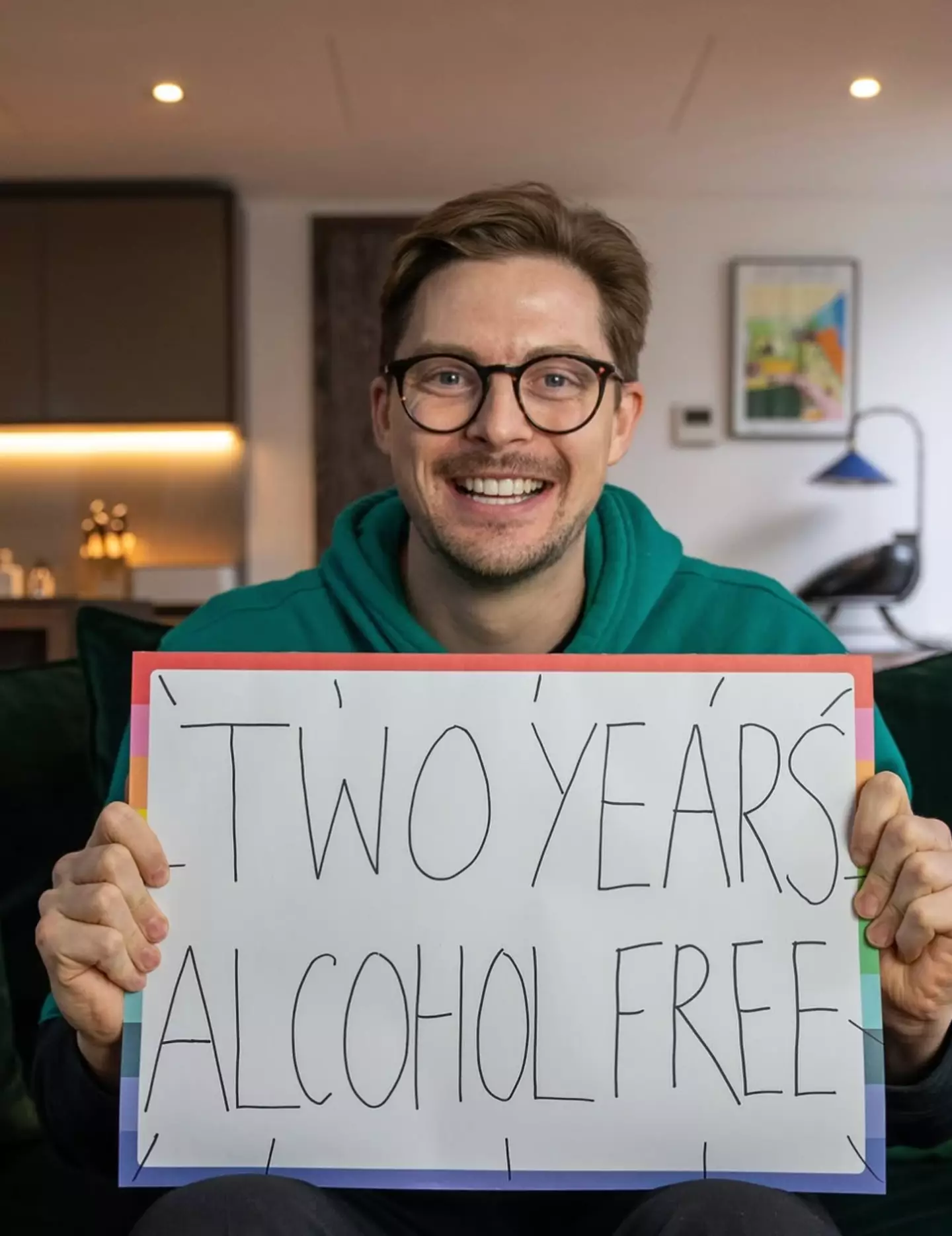
Alex is very open about his journey online. (Instagram/dralexgeorge)
“I still get highs and lows like everyone,” he adds. “I’ve had some really difficult times the last year, but they are more manageable, and there’s less swinging of the moods.”
Alex describes this as a ‘huge, huge difference’ in his life. “Not feeling really high and terribly low all the time is massive.”
Going sober hasn’t just made Alex realise the impact alcohol was having on his ADHD but also other aspects of his life.
Describing it as a ‘big barrier for people achieving their dreams’, he says going sober causes you to ‘start looking long-term’ properly.
Nowadays, the doctor has more energy, clearer skin and saves a whole load of money.
“You could be spending hundreds and hundreds of pounds on alcohol without even realising. You’ve got to include the sunken costs of the takeaways. You’ve got to include the next day, the fast food. You’ve got to think about the taxis.”
Alex says he’s now been able to fund his motorbiking hobby thanks to being sober as he adds proudly: “I have a motorbike in my garage because I don’t drink.”
This all ties into the common mistake he reckons people make when they try Dry January.

Alex says going sober should ‘enrich’ your life, not ‘restrict’ it. (Instagram/dralexgeorge)
“Often in Dry Jan people go ‘I’m staying inside, I’m not gonna spend any money’ and isolate themselves. By the end of the end of the month, they’re miserable which is no surprise. It should be the opposite,” Alex explains.
Simply put, giving up alcohol ‘shouldn’t be a restriction’ on your life, it should ‘enrich’ it.
With various tips on going alcohol-free in his book The Mind Manual, the doctor also advises socialising even more than you might think.
“I think it’s really nice to plan from a point of enriching your life. Don’t plan from restrictions,” he says. “So, when you’re looking at the weekends, don’t think ‘I’m going to stay in,’ think, ‘How can I add to my life?’ I tried in those first few months to make sure I had at least one social contact per day on the weekends.”
With that boost of energy and the money saved from going sober it’s no surprise that new ‘doors will open’ to you without alcohol if you let them.
“I have never to this day ever heard of anyone or spoken to someone who said they’ve regretted quitting drinking alcohol.
“You could walk outside each day and speak to so many people who constantly regret the drinks they had the night before.”
The Mind Manual by Dr Alex George, published by Short Books, has now released in paperback for £10.99. You can buy a copy at The Mind Manual
Dry January is a campaign developed by Alcohol Change UK, you can find support and resources for taking part here.
Please drink responsibly. If you want to discuss any issues relating to alcohol in confidence, contact Drinkline on 0300 123 1110, 9am–8pm weekdays and 11am–4pm weekends for advice and support.
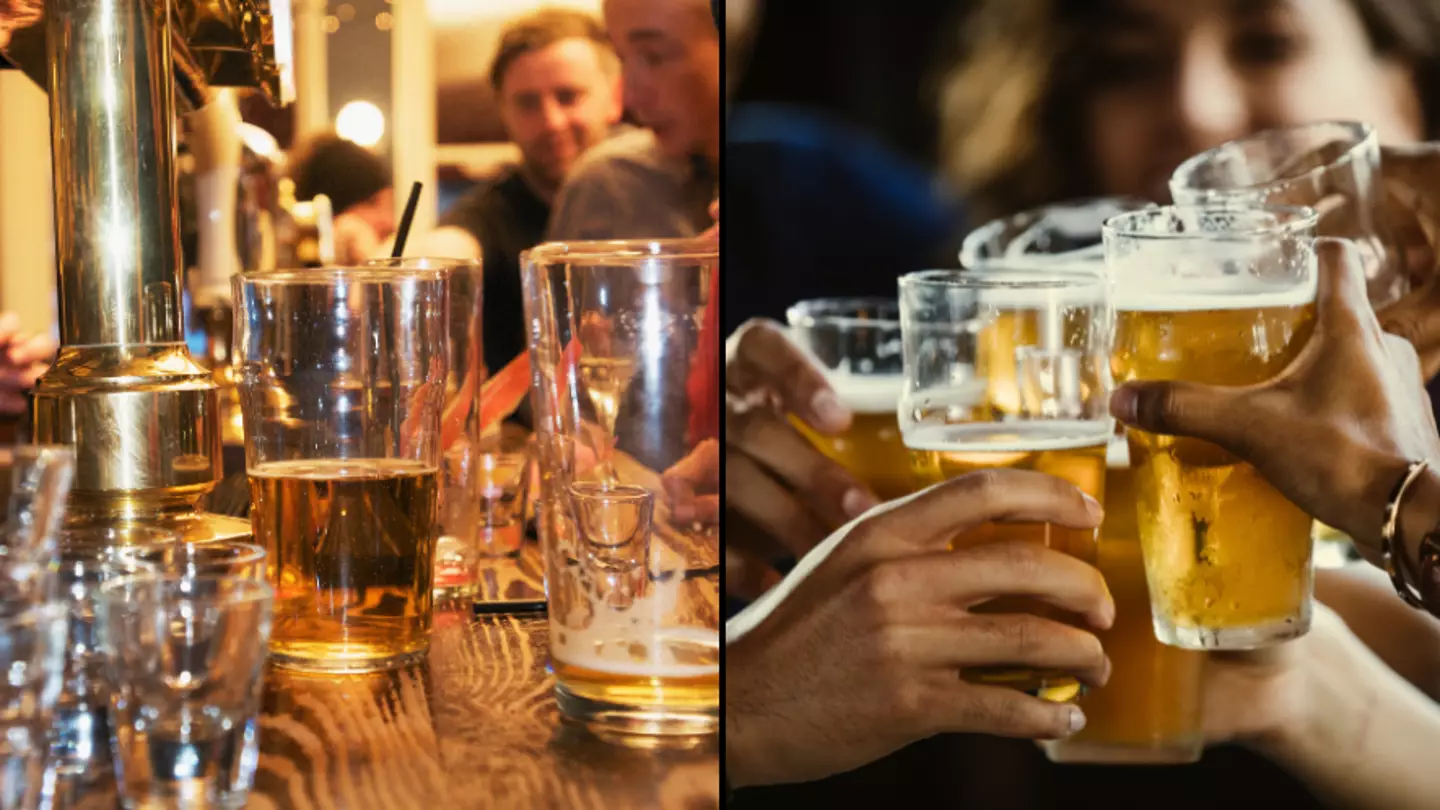
Warning: This article contains discussion of alcoholism which some readers may find distressing.
Catherine Gray has been sober since 2013 after realising her alcohol ‘intake was sliding out of control’. And she’s now shared a five-question quiz that will reveal if you have a drinking problem yourself.
For the writer, she previously told This Naked Mind podcast how some weeks she ‘could manage 40 units but most weeks it was 50 units or 60 units’ (the recommended number of units for women is 14) and found herself drinking a ‘life-endangering amount of alcohol’.
Plus, she explained to Femail how she was ‘drinking up to seven bottles of wine a week’ and ‘knew she was going to die’.
So, she made ‘the soundest decision’ of her life and chose to quit drinking. And perhaps as the sunnier days are here, you’ve realised you’re drinking most nights – and not exactly in moderation.
And to help with your health, Gray shared signs your drinking has entered the ‘grey area’ that sits between ‘non-addicted and fully addicted’.
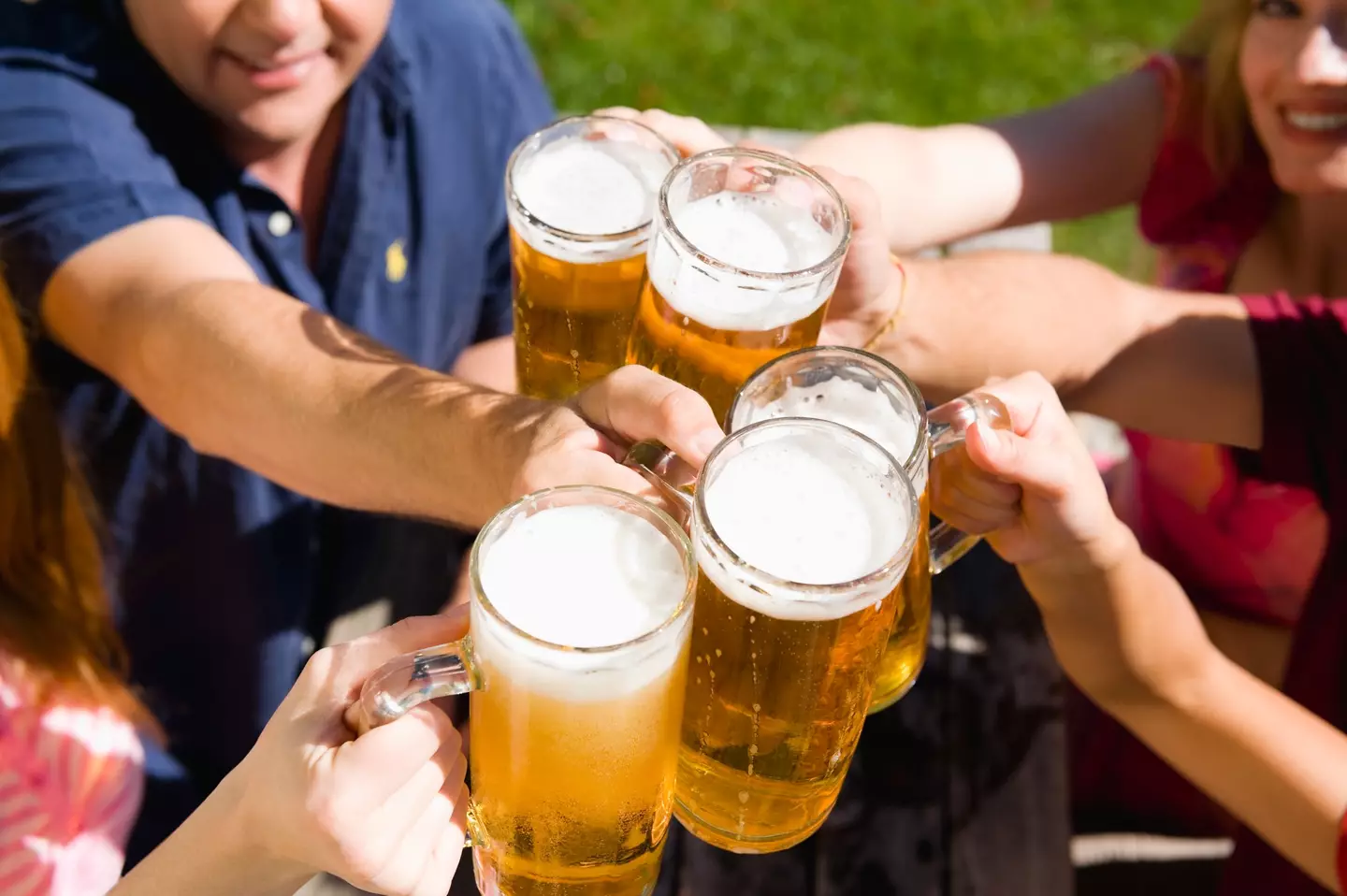
You might drink more than you intended. (Getty Stock Photo)
You google: “Am I an alcoholic?”
She explained how those who drink ‘healthily’ won’t be sitting on Google searching if it’s ‘troublesome’.
“The amount and frequency of intake is largely irrelevant,” Gray said.
But if you’re already subconsciously wondering if you have a drinking problem, then it seems like you probably do.
You’re secretive about your drinking
Gray explained how she used to easily ‘fool’ herself that her excuse of ‘I’m staying up to watch another episode’ before finishing off a bottle and later replacing it ‘wasn’t hiding bottles’.
“But it was,” she said. “Because I was hiding having finished it.”
She said there were other ‘hiding strategies’ like taking the glass recycling out late at night or starting drinking at home or ‘deliberately buying a drink that isn’t visibly alcoholic’.
The writer added: “These are all ‘hiding’, they’re just not as bold as hiding a liquor bottle.”

You might be struggling to control it. (Getty Stock Photo)
You’ve tried controlling your drinking
When she was 29, Gray tied a ‘moderation experiment’ where she kept a daily unit count in a ‘golden notebook’ in an attempt to stay under 30 units a week.
Doing it for a few months, she only managed it twice.
“I now know from thousands of readers that this ‘count and control’ stage, and the ditching thereof, is very common,” she explained. “The attempt to control is actually a sign you’ve lost control.”
You say you drink moderately
Gray says it’s the people who go on too much about how they are ‘definitely moderate’ or how they always stop at two drinks or how they never get hangovers.
Plus, these people will look for people who are worse than them, protecting their ‘own toxic drinking’.
“If you have nothing to protect, you don’t need to prepare a speech of defence,” she added.

You might hide your bottles. (Getty Stock Photo)
You drink more than you intend to
This sign is the ‘clincher’ as you ‘consistently and repeatedly’ drink more than you initially intended.
Gray advises to think of other ‘consumables in life’ to notice this.
“I don’t buy a family cheesecake and intend to have one slice and end up having three,” she explained. “Therefore, I have no issue with cheesecake.”
Please drink responsibly. If you want to discuss any issues relating to alcohol in confidence, contact Drinkline on 0300 123 1110, 9am–8pm weekdays and 11am–4pm weekends for advice and support.
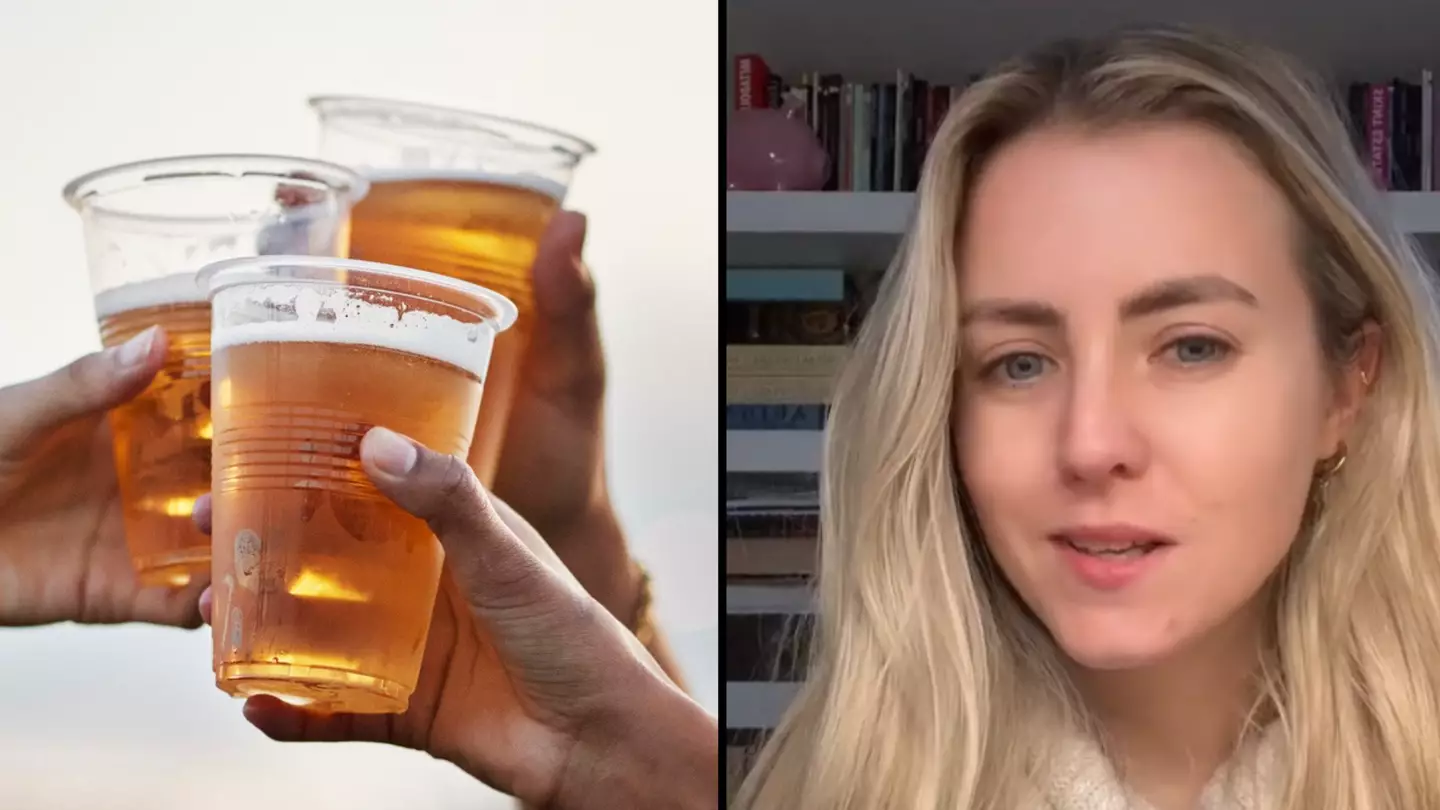
Warning: This article contains discussion of alcoholism which some readers may find distressing.
With summer in full swing, it often feels like every social plan suddenly revolves around drinking.
Your colleagues suggest a quick pint after work, all the group chats are discussing is which beer garden is best and your housemates are offering you a cold one the moment you walk through the door.
But it can be a tricky time for those who are sober or, those with a drinking problem.
Plus, it might be a time you notice perhaps your best mate doesn’t have the best relationship with alcohol as you keep an eye on their habits.
And helping with that, Issy Hawkins shares videos about her sobriety on TikTok and talked through what some of the ‘early warning signs’ were that she had a ‘dysfunctional relationship with alcohol’
.jpg)
Maybe you’ve been drinking more than usual. (Getty stock)
She would ‘try and sneak in extra drinks’ while out with her mates.
So while offering to get a round in, she’d quickly down an extra one while at the bar.
Another big warning sign for her was: “Having a feeling of panic when I realised maybe everyone was gonna stop drinking and I hadn’t had enough and hadn’t had my fix.”
READ MORE:
HOW LONG IT TAKES TO REVERSE FUNCTIONAL ALCOHOL TOLERANCE
Issy said she’d also end up feeling panicked if she arrived at an event and realised that people weren’t going to be drinking and she ‘might not be able to’.
“Just a general feeling of panic,” she explained, “if I felt like I wasn’t gonna have enough.
“Then, scheming in my head to be like, ‘How can I make sure this heads in the direction that we’re all gonna start drinking?’”
.jpg)
She also found herself drinking at any opportunity. (Getty stock)
Other warning signs Issy says she’d experienced included ‘secret drinking’, absolute loving and being ‘obsessed with day drinking as well as turning into an ‘angry, nasty person’ if she realised she wasn’t going to get to drink.
Another thing she found happening as she got older was ‘drinking at home, by herself’ for no particular reason.
Plus, when she’d be out drinking with friends, she’d ‘constantly have an eye’ on the pace they were drinking at.
Issy explained that alcohol began to consume her ‘every waking thought’.
“It was like my whole life revolved around when I could drink, how I could drink, how much I could drink. These were all warning signs for what later became a really insidious dangerous drinking problem,” she added.
Keep an eye on your mates lads, and don’t forget to check in with yourself as well as them.
Please drink responsibly. If you want to discuss any issues relating to alcohol in confidence, contact Drinkline on 0300 123 1110, 9am–8pm weekdays and 11am–4pm weekends for advice and support.
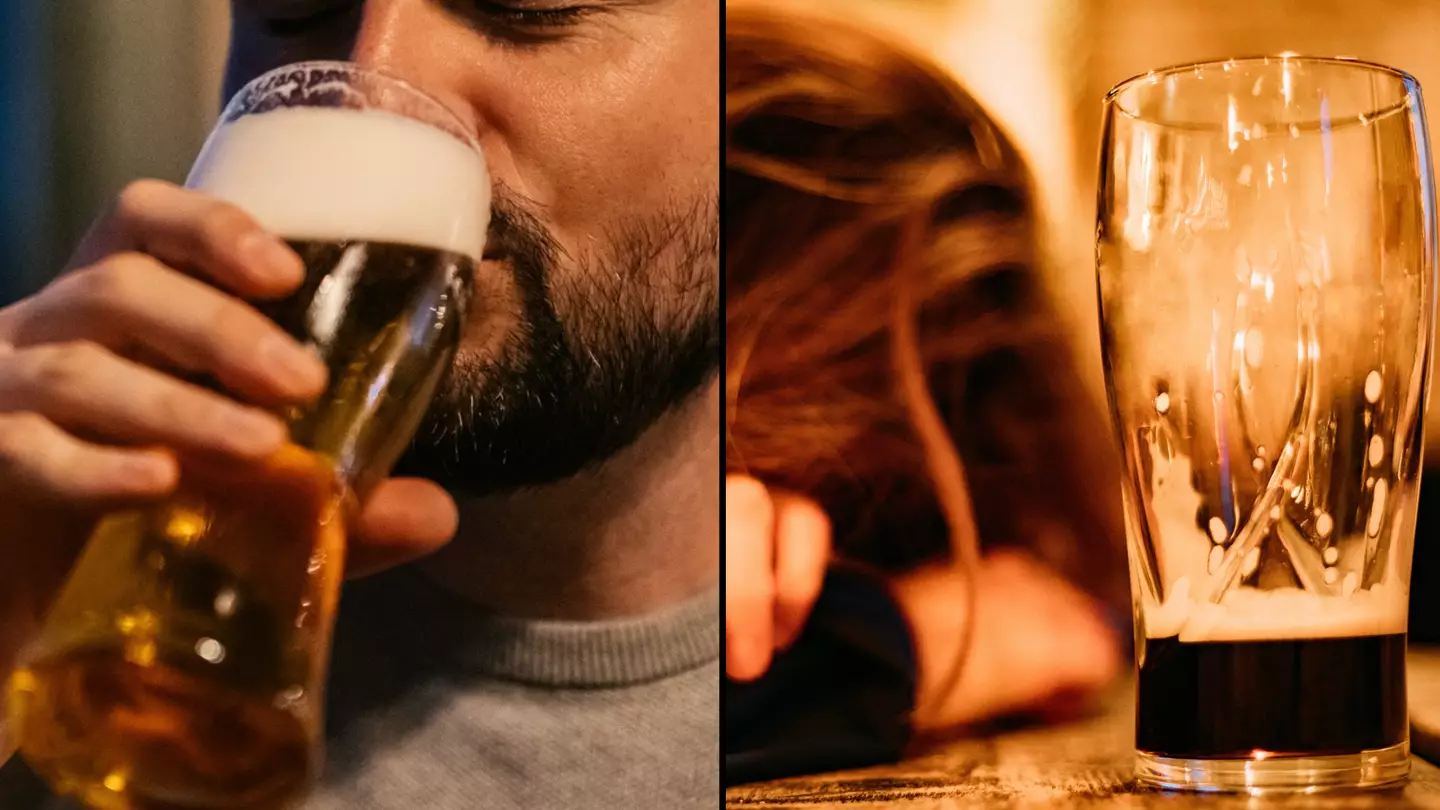
If you have ever been in the unenviable position of having to speak up to someone you know about their addiction, you will have a difficult conversation on your hands.
They may very well not see it your way, or even have come prepared for such a discussion, so it can be helpful to know what you might have to encounter.
Writing for Addictions.com, a group of experts laid out a total of 13 of the most common excuses which you might encounter when encouraging someone to seek treatment.
They said that alcohol addiction could ‘damage every aspect of a person’s life’, and that those affected by it would often ‘refuse to see the risks or consequences’ while having ‘a litany of reasons’ why they didn’t need help.

Drinking can be a very social activity, but some people will skip socialising if they don’t think there’s going to be alcohol involved. (Getty Stock Photo)
Everyone’s doing it
Lots of people drink alcohol without having an addiction, but someone struggling with alcoholism may say that they’re just drinking with everybody else.
A lot of social interactions revolve around drinking, but the experts warned that someone might pick social situations where drinking was always involved and avoid the times when it wasn’t happening.
A doctor who gave up alcohol for over a year challenged people to think about whether it was really drinking or socialising that they were looking forward to.

Those struggling with addiction may refuse to believe they have a problem, or will say they can quit whenever they like. (Getty Stock Photo)
I don’t have a problem
The next one on the list, according to the experts, was straight up denial, which comes back to them saying someone could ‘refuse to see the risks or consequences’.
Even if it’ll catch up to them eventually, it’s very possible they’ll argue back that they don’t have a problem.
It’s not hurting anybody
Even if they do acknowledge there’s an issue, the experts said they might focus on it not resulting in behaviours that openly hurt other people.
They said that many alcoholics would claim their drinking ‘doesn’t hurt anyone, or at least not anyone but themselves’.

Health experts said that alcoholics could say they were just about to give up drinking and genuinely mean it in the moment, only to fall back on old ways. (Getty Stock Photo)
Last time, I promise
Another common excuse was that they didn’t need help if they were just about to kick the habit themselves anyway.
The experts said that ‘at the moment, this claim can seem completely true’ and be a genuine promise, but that alcoholism has ‘created actual structural and chemical changes in their brain’s reward pathways’ which will make this incredibly difficult to follow through with.
I’ve earned a few drinks
Speaking of the brain’s reward pathways, the experts noted that many will come to see having a drink as a reward after a long day or a major achievement.
Therefore, they’ll come up with the excuse that they’re not drinking unreasonably or to excess, but will still drink a lot and tell themselves it’s an earned treat.
The experts said that an alcoholic would decide they’d earned this treat ‘nearly every day’.

People might tell themselves they’ve earned a few drinks, but experts say they’ll decided ‘nearly every day’ that they’ve earned it. (Getty Stock Photo)
I need to drink to do this
There may be some aspect of their life, whether professional or social, in which they believe they wouldn’t be able to do without alcohol, and so will say they need to keep drinking.
I can’t be that bad, someone else is worse
If someone can’t think of a defence for themselves, they might try to redirect the criticism and point out someone in a worse situation.
The Addiction.com experts said that ‘an alcoholic will always be able to find someone who appears to be worse off than themselves’, and that ‘there is no hierarchy when it comes to addiction’, so this justification doesn’t wash.
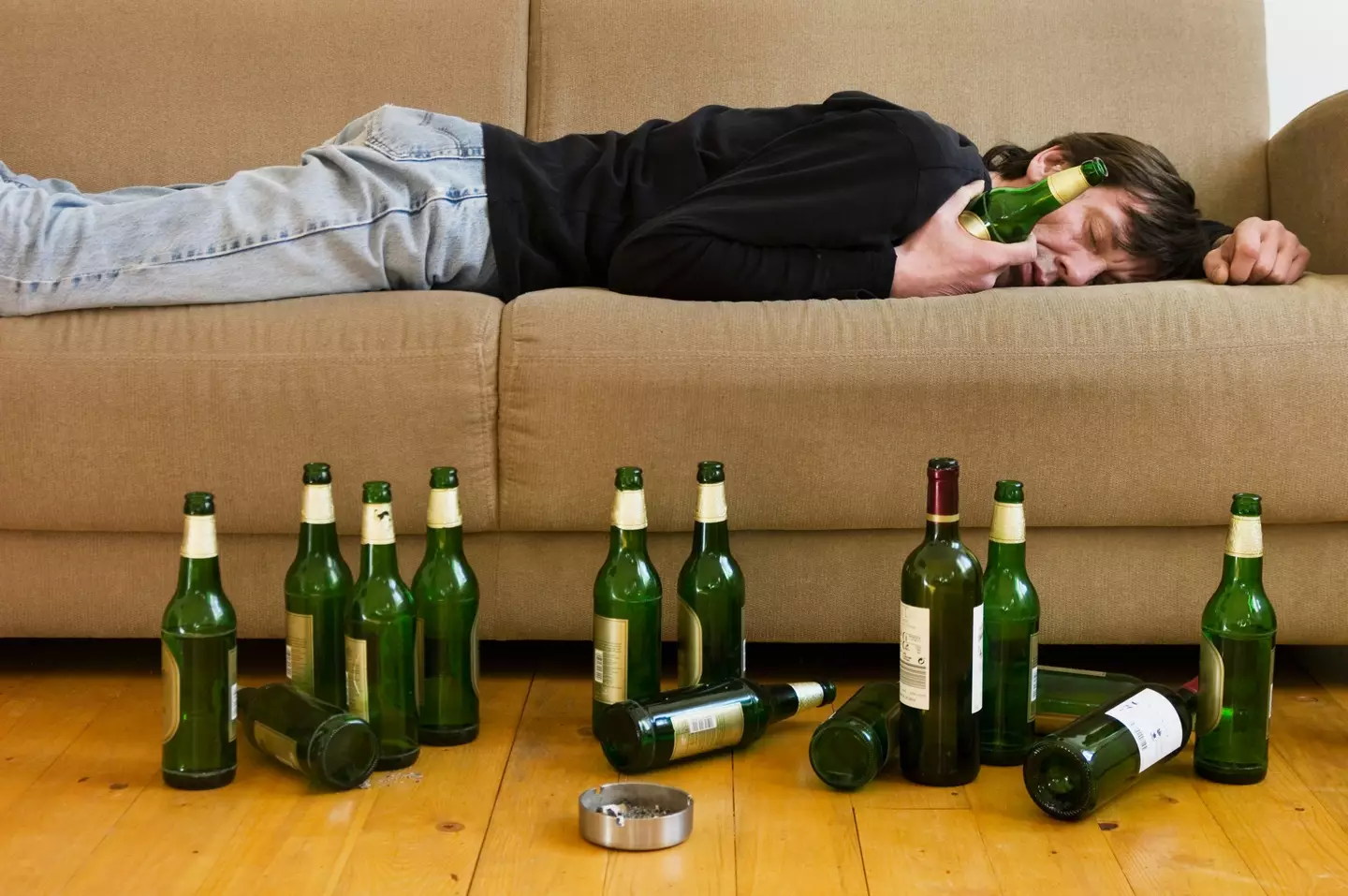
“There is no hierarchy to addiction,” the experts said, so even if someone else looks to be having it worse it’s no reason to avoid treatment. (Getty Stock Photo)
I don’t have time
It’s a busy life and that might be used as a way of deflecting attempts to get them to seek treatment.
Those in the know said that ‘getting treatment should be an alcoholic’s top priority’, and that someone would likely have a lot more time if they were able to confront their addiction.
A man who gave up drinking for good said he found he had the time to take up his old hobbies and interests.
I can’t afford treatment
Though they acknowledged that some treatment courses for alcoholism were expensive, the experts said help was available.
The NHS recommends that your first port of call is your GP as they can talk you through your problems and may be able to refer you for treatment.
.jpg)
Addiction sufferers might say they don’t have the time or money for treatment. (Getty Stock Photo)
I can’t leave work
When discussing what treatment you can get, you’ll be talked through a treatment plan which will take into account your work.
The health issues caused by alcohol addiction are also likely to be worse for you than trying to tough it out and stay in work.
I can stop whenever I want
According to the experts many alcoholics genuinely believe they could quit drinking whenever they wanted to, they just don’t want to yet.
There are a number of alcoholics who quit drinking not out of the blue, but because they partake in an event such as Dry January, and start feeling the benefits.
The very nature of addiction makes it difficult to stop at any time.

Many who have stopped drinking say they come to feel healthier and happier afterwards. (Getty Stock Photo)
The detox would be too much
If you’ve developed an addiction to alcohol and stop drinking, then it will have a significant impact on your body, that much is true.
In the short term, you would suffer some withdrawal symptoms and find it particularly difficult to stay away from alcohol, but the longer you stick at it, the more health benefits you are likely to find.
Better sleep, better mental health, and an improvement in other bodily functions can all help improve your mood until you’re feeling better than you ever did while drinking.
If you or someone you know is struggling with alcohol addiction, support is available through the national alcohol helpline Drinkline, which you can call for free in complete confidence at 0300 123 1110 (weekdays 9am to 8pm, weekends 11am to 4pm).



